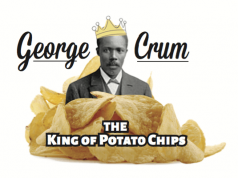
Before his capture and journey to enslavement, Onesimus lived in a world greatly influenced by Islam and its highly developed medical system. Africans, including Onesimus, who were torn from their homeland and forcibly moved to the Americas, carried this rich cultural, religious, and medical background with them. Once in the New World these enslaved Africans played a major role in shaping society in the Americas.
One of a thousand people of African descent living in Boston, Onesimus was a gift to the Puritan church minister Cotton Mather from his congregation in 1706.
Onesimus shared with Mather the centuries old tradition of inoculation practiced in Africa. By extracting the material from an infected person and scratching it into the skin of an uninfected person, you could deliberately introduce smallpox to the healthy individual making them immune. Considered extremely dangerous at the time, Cotton Mather convinced Dr. Zabdiel Boylston to experiment with the procedure when a smallpox epidemic hit Boston in 1721. The study showed that of the approximately 240 people who were inoculated, only 6 contracted smallpox. Opposed politically, religiously and medically in the United States and abroad, public reaction to the experiment put Mather and Boylston’s lives in danger despite records indicating that only 2% of patients requesting inoculation died compared to the 15% of people not inoculated who contracted smallpox.
Once the controversy ended in Boston, Mather and Boylston continued to champion the cause of inoculation. From Boston, inoculation spread to England and throughout the English colonies of the New World which one can trace back to the day Onesimus showed Mather “in his arm the scar.” In 1980 the World Health Organization (WHO) declared the world free of smallpox. Many believed this eradication to be the greatest achievement of medical science. Inoculation had been replaced with vaccination but without the foundation laid all those years ago by an African slave, vaccination might never have come to be








